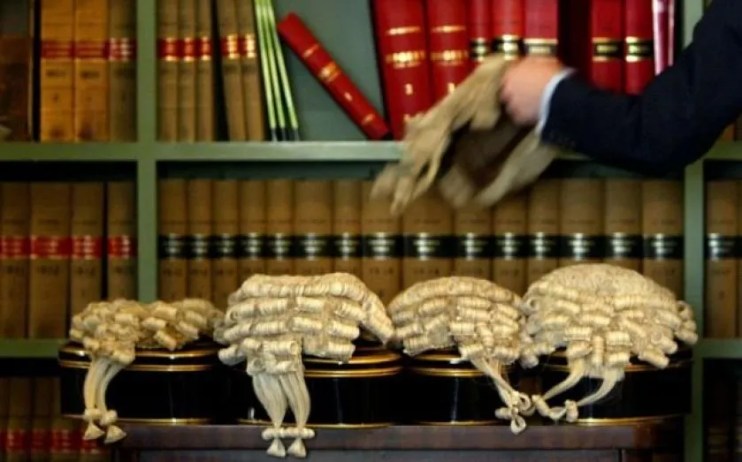The Post Office scandal: How can a criminal conviction be quashed?

A lot is going around about quashing convictions given the ongoing Post Office scandal, but what does this actually mean? Legal experts explain to City A.M. the process of quashing a criminal conviction.
The standard procedure to have a criminal conviction quashed is to appeal against the conviction – and for it to be successful.
Rojin Tasman, criminal litigation solicitor at Britton and Time outlined that “an application to appeal conviction needs to be submitted in 21 days from the date of conviction at the Magistrates Court and 28 days from the date of conviction at the Crown Court.”
She noted that if permission is granted the appeal hearing will be listed at the Court of Appeal, which will be in front of three judges.
There can be several reasons why a conviction is quashed once the Court of Appeal deems the conviction unsafe. Richard Cannon, partner at Stokoe Partnership Solicitors explained that “this can include mistakes or misconduct during the trial, disclosure issues or on the basis of fresh evidence.”
Francis FitzGibbon KC of 23ES highlighted that the time limit to appeal can be flexible, explaining that people can appeal years later. He explained that “typically that would be if some devastating new piece of evidence emerges, which no one knew about at the trial, and it doesn’t come to light for long afterwards.”
He did explain that if someone is appealing outside the 28 days, they will need extra permission to appeal, which he highlighted “depends to a great extent on the merits of your case.”
If someone does lose their appeal, it may not be the end of the road as there is the Criminal Cases Review Commission (CCRS). This is a statutory body responsible for investigating alleged miscarriages of justice in England, Wales, and Northern Ireland, established in 1997.
FitzGibbon KC explained that the CCRC is restricted by the tests that they have to apply when they decide what to do with the case.
“Their power is to refer cases back to the Court of Appeal for another look but when they make that decision, they are required to predict whether the Court of Appeal will decide there is a real possibility that the conviction will not be upheld,” he explained.
If a conviction is quashed, what happens to the record, according to Cannon “conviction is removed from a person’s criminal record.”
However, Tasman explained: “I have had clients experience issues with securing jobs despite their conviction being quashed as the details of the case which were sexual in nature for this particular case was still disclosed on his DBS check.”
She explained that a further application needs to be submitted to delete records from the Police National Computer as they keep a record of all details and if they deem it appropriate would disclose such to future employers.
In the case of the subpostmasters of the Post Office, back in April 2021, the Court of Appeal had a batch of cases referred to the CCRC.
According to Tana Adkin KC, chair of the Criminal Bar Association, the court concluded that in all cases in which the reliability of Horizon data was essential to the prosecution and in which there was no independent evidence of actual loss, the trial process could not be fair.
To date, there have been 93 Post Office-related convictions overturned, including some who are deceased.
The recent drama on ITV has resulted in public outcry over the Post Office scandal, which has forced the hands of the Government to do something for those wrongly convicted of the crime.
Today at PMQs, Rishi Sunak announced “new primary legislation” to ensure hundreds of wrongfully convicted victims of the Post Office Horizon IT scandal are exonerated and compensated, following days of mounting pressure.
Adkin KC said: “The government’s aim to fast-track exoneration for innocent sub-postmasters and pay compensation is to be applauded.”
She continued: “But as yet we do not know how the legislation is to be drafted or what its full effect will be. The suggestion of sub-post-masters having to sign a document, given that many were misled into signing documents acknowledging guilt when they were not guilty previously, is of concern.”
“The issue really is simply one of time, it has taken far too long to identify cases of sub-postmasters convicted on the dubious Horizon evidence and has taken even longer following that process to make full reparation to the innocent,” Adkin KC added.
Cannon pointed out that quashing convictions through legislation is a constitutional issue and could be deemed as Parliamentary interference in the independent judicial process.
He explained: “Should blanket legislation be passed, therefore, it is vital that safeguards are established to prevent Parliamentary backdoors into the court system of England and Wales and allow for a clear separation between the powers of the courts and the state.”
“It is not the role of Parliament to pass legislation to unwind convictions of the court and, while an exceptional case, rushed legislation could set an uncomfortable precedent for future cases,” he added.